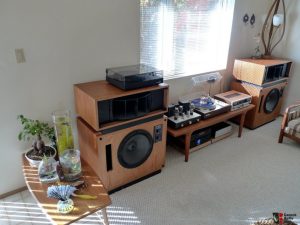
Do People Still Care About High Fidelity?
When I was in high school, I saved money from my after school job until I had enough to afford every ’80s teenager’s dream: a hi-fi system. By the end of a summer, I had enough for a complete Pioneer home stereo system: a turntable, dual tape deck, receiver, and even one of those new CD player things, along with two tower speakers that provided the most important requirement of all: bass. I upgraded the system here and there, but for the most part, that was my home stereo from age 17 until I finally parted ways with it in my mid-thirties. It sounded good, and it was loud. I even used it as my P.A. at some of my earliest DJ gigs. There were certainly far better-sounding home stereo systems out there, but mine was well above average. I even took the time to hot-glue faux leopard print to the speakers, and build a custom housing for it, complete with a shaggy exterior. I’ve included pictures below, as inspo for you budding interior decorators.
A hi-fi home stereo was something nearly everyone had back then, and everyone wanted the best-sounding system they could afford, because music was important to people. It still is, or at least I think it is, but I wonder if it is as important. The sound quality of music being played certainly isn’t important at all. We’ve gone from music being played on tape, record, or CD, all formats that offer crisp, clean, full-range sound– and yes, tapes sound better than you remember– to the norm being low-quality, highly-compressed, digital files. Even the best mp3s sound noticeable worse than any of the legacy formats I listed, and yet, no one cares. Spotify compresses already compressed files for quick streaming, and everyone accepts the sound quality.
Even worse, most people play those lo-fi songs on lo-fi equipment, either the tiny speakers built into a laptop or tablet, or via bluetooth to a small, lo-fi speaker, or, the worst option quality-wise of all, through earbuds. Sound quality has truly become utterly unimportant.
This makes sense, because in a time when music has been relegated from art to mere “content,” why should anyone care how good or bad the music sounds?
Do you care? Do you have a hi-fi system? If not, why not?
And now, as promised, my former home stereo in all its glory:
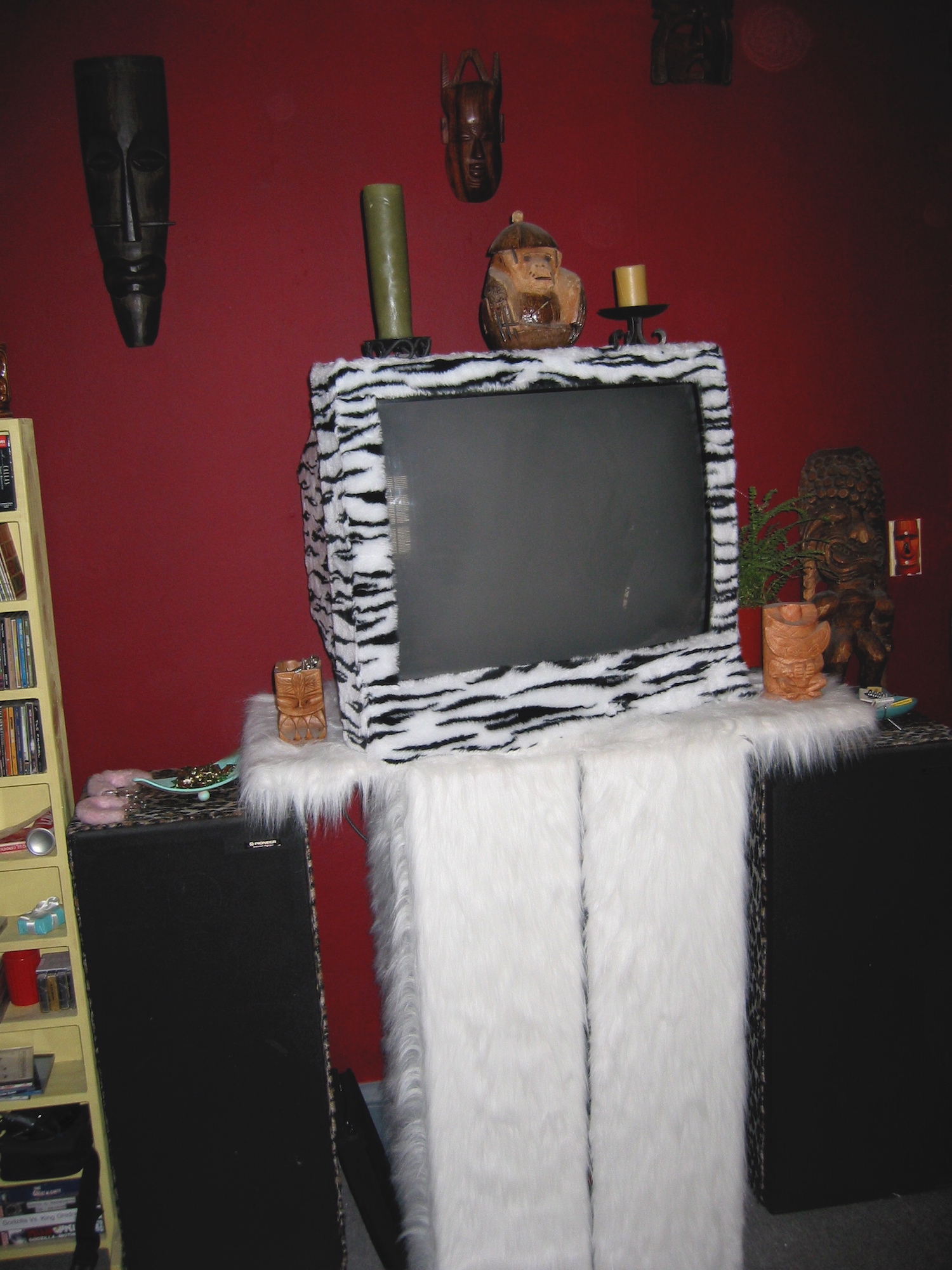
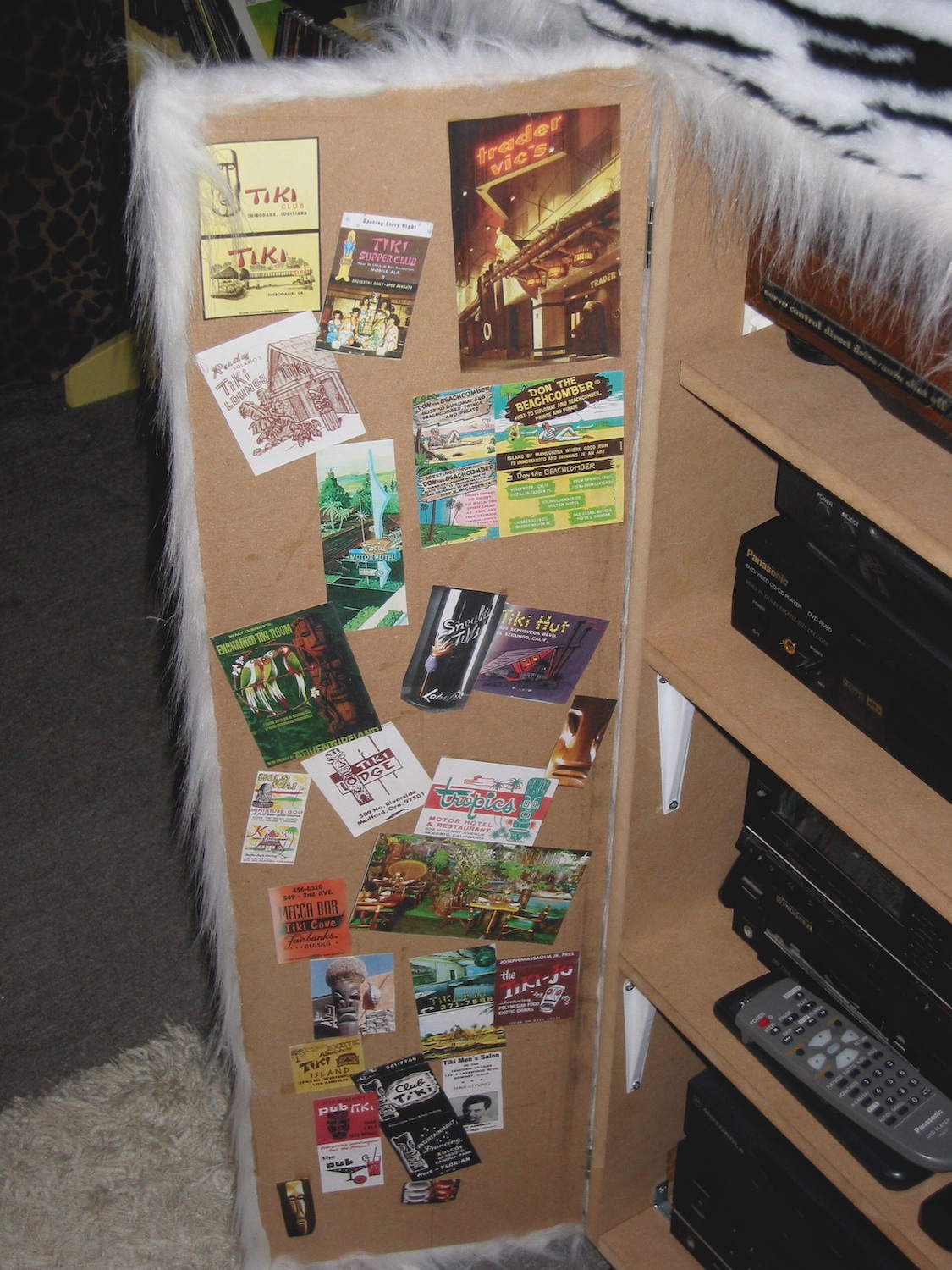
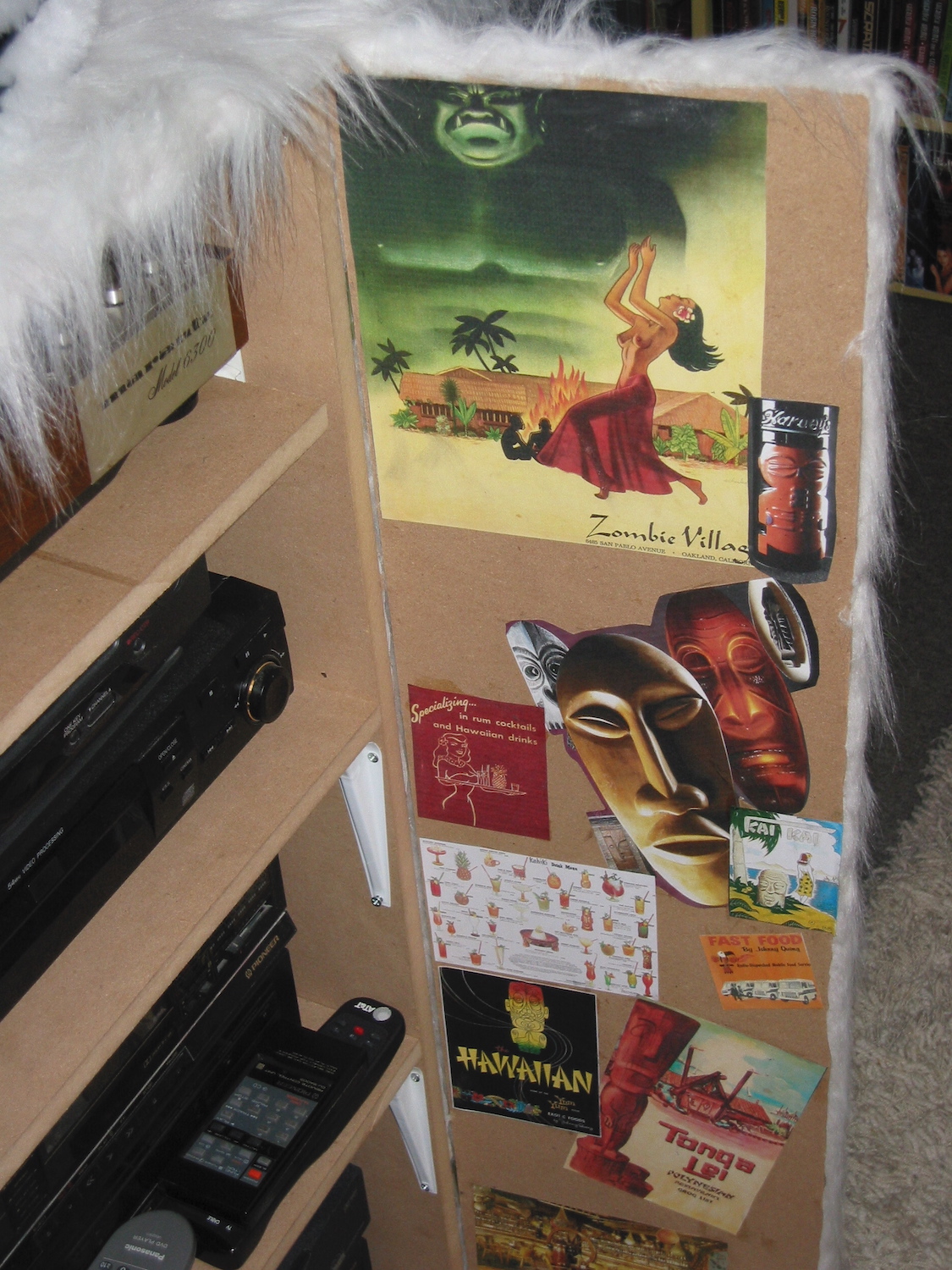

Selling Vinyl Records at a Convention
I spent part of this past weekend at the Austin Record Convention, which is the largest record show in the United States. Sellers come from all over the nation to sell records for three days, and buyers show up from all over Texas, and beyond. I’d been to the convention in the past, but this time I was there not to buy records, but to sell. A friend and I split the surprisingly affordable cost for a table, a mere $150 for the 3-day event. For $87.50, how could I not give it a try?
Some vendors showed up with thousands of records, spread out over multiple tables, in dozens of boxes and crates, with walls behind them displaying their most precious wares. I was only there to sell from a couple creates, and all the records I was offering were ’80s and ’90s rap albums. I realize that while I still play my 12″ singles from time to time, I haven’t touched these albums in years. Many I haven’t played since I bought them; some I never played all the way through even once.
If you are contemplating selling vinyl at a record convention, I hope you will find the details of my experience helpful.
The event takes place over three days, but in all honesty, only the first day was worthwhile. I didn’t even bother to come back the third day, so perhaps I missed out on some fabulous sales, but I don’t think that is the case. Here’s my breakdown of the three day’s crowds:
Friday
This is the day that the serious buyers show up. While a ticket that gets you in on both Saturday and Sunday costs but $5, a ticket for Friday through Sunday costs $30. The people who pay that are paying that extra $25 for a chance to get dibs on the better stuff.
Saturday
There was a larger crowd on Saturday, but barely any were interested in what I was selling. I should point out that most of my crates contained expensive, rare records, so while countless people ogled my promo vinyl of “The Low End Theory,” or my first press of “Illmatic,” none were prepared to pay the price to own them.
Sunday
As I mentioned, I didn’t go, but I was told that most of the Sunday crowd are the opposite of the Friday crowd. They show up hoping to talk dealer’s down, and scoop up bargains. As I wasn’t there to sell below fair market value, I think I’d have spent most of Sunday saying “no thank you.”
Some tips:
1. Bring a couple large blankets. Security is tight, but dealers are expected to cover their wares with a blanket if they step away from their table, or when leaving inventory there overnight, to prevent any quick walk-by snatching of vinyl.
2. Bring food! Unless you come with a crew, you can’t really walk out and get lunch. The show runs from 8am to 6pm, and you’re going to want to eat during that time.
3. Some signage helps. If you don’t have a display rack behind you, put up a sign letting people know what kind of music you’re selling.
4. Maybe the most important thing for me, but it will depend on what you sell how important it is to you: Nearly no one there was selling rap records, and most buyers there had no interest in hip hop or rap. Record conventions are all about rock & roll. Elvis is king. The Beatles are everywhere. People want Dylan and the Stones. Blues are huge. Jazz is massive– the guy next to me got $800 for a beat up Hank Mobley record. Sweet soul and R&B are heavily sought after. Rap? Nope? House, techno, EDM? Even less popular than rap.
So, how did I do? Well, I didn’t sell that many records. I only sold 15 records in total. But they sold for an average of about $50 each, so it was well worth the effort. I’m in a different position than a full-time dealer, in that I bought all my records new when they were released, or received them free in record pools back in the day. Most record sellers operate on a much smaller profit margin. I spoke with quite a few during the event, and the general consensus was that they look for deals at show, and pay perhaps $40 for a record they think they can get $50 for. For them, volume is key. They need to sell a lot of records to make a profit. If you’re like me– selling a personal collection– you’ll likely have a massive profit margin on each record you sell. The records I didn’t get for free back in the day cost me between $7 and $9 each, so $50 per record is an excellent return.
Finally, I’m sure you’re wondering– what did you sell? Here’s a breakdown of each record I sold, and what I go for it. I should mention, unless otherwise noted, each record below is the original pressing, bought new upon its original release, and record and sleeve were in VG+ to NM- condition.
Big Daddy Kane “It’s a Big Daddy Thing”
50.00
Boogie Boys “City Life”
10.00
Davy D “Davy’s Ride”
8.00
Edan “Beauty and the Beat”
115.00
Eric B. & Rakim “Paid in Full”
70.00
Heavy D. & the Boyz “Big Tyme”
20.00
Jungle Brothers “Straight Out the Jungle”
25.00
L.L. Cool J “Bigger and Deffer” (record VG with one bad scuff on side B, affecting two songs)
12.00
Main Source “Breakin’ Atoms” [promo pressing]
151.00
Newcleus “Jam On Revenge”
80.00
Public Enemy “Yo! Bum Rush the Show”
30.00
Rocksteady Crew “Ready for Battle”
20.00
Son of Bazerk “Bazerk, Bazerk, Bazerk”
49.00
Stereo MC’s “Supernatural”
30.00
Whodini “Escape”
50.00
Final Tally: $720 for 15 records, minus the 87.50 fee = a solid profit
So there you have it. My weekend selling records. I hope this helps any future record vendors. As ever, ask any questions in the comments of any of our social media platforms.

April 22 Video Recap
Heavy Hits is more than a record pool. You obviously know about our blog– you’re reading it right now– but do you know about our YouTube channel? It’s full of information and tutorials designed to help you become a better DJ or producer. Here’s a recap of what was shared on our YouTube channel this month.
First up, our resident YouTube creator DJ And One teaches us how to get the most out of a Heavy Hits record pool membership.
Next, learn how to quantize songs using Ableton.
And finally, here are 4 ways to use your crossfader when DJ’ing.

Is Beat-matching Necessary?
Okay, maybe the title of the article is a little click-baity, because obviously beat-matching is necessary. A DJ has to blend songs and the BPMs need to be lined up to do that. Except, what if maybe he doesn’t? So yeah, I stand by the title. Is Beat-matching necessary?
My answer is that it’s a good skill to have, and it is nearly never a bad idea to mix between two beat-matched songs, but I believe it is far less important than most DJs believe it to be. Granted, if I were to perform for an audience composed entirely of the people will will read this article, I’d better be a grandmaster of the art. That’s because I believe it is safe to assume that 99% or more of the readers of the Heavy Hits blog are DJs, and when one DJ listens to another DJ play, he tends to be hyper-critical of the performer’s skills. Even the slightest errors in beat-matching, phrasing, volume, or any other aspect of a mix won’t go unnoticed.
The same cannot be said for the general public, and as it is the general public who will make up the vast majority of your audience, those are the only people you really need to please. Do they care about beat-matching? Not in the slightest. Most of them aren’t even aware that beats can be matched. They want to enjoy some music, and possibly dance, and couldn’t care less about any of the hows or whys that go into making that music happen.
I know what I’m saying goes against everything you believe about DJ’ing, and right now you are shaking your head in disbelief that I actually think people don’t notice, if only on a subconscious level, that music sound better when skillfully mixed. It does, don’t get me wrong, but my experience, after many decades of DJ’ing professionally, is that people simply don’t care. As long as you play the right songs, nothing else matters to most people.
Here’s a story that underscores my point. About a decade into my DJ career I was setting up to DJ a party, and just as I was ready to begin I realized my headphones weren’t working. I had no time to run out an buy a new pair, and had no choice but to DJ without headphones. Keep in mind, this was in the 1990s, and I was mixing actual vinyl records, so I had no hot cues to trigger, no waveforms to consult. Everything had to be mixed by ear, in headphones, or there would be no mixing. And so, that night, for 4 hours I DJ’ed for about 200 college kids without mixing anything. Worse, I had to cue songs up live in the speakers. Songs with a spoken intro? Zip past it live in the master out for all to hear. Every single song for 4 hours just scratched in, or dropped in, or beat-matched live in the house system for all to hear. That client continued to hire me to DJ 6 events a year for the next several years.
At the end of the night, I went to apologize to the social committee. They hadn’t even noticed. No one had. Literally no one I spoke to that night was even aware that what I’d done was different from what any other DJ had done. The dance floor stayed full the entire night, the energy was high, and everyone had a great time. Because they heard the right songs.
Don’t take any of this to mean you should be lazy as a DJ, or you should not be constantly working to refine your skills. Merely realize that what is most important to you, as a DJ, about your performance, may not register at all with your audience.

Tax Time is Here – Are You Paying Too Much?
Tax time is here! Are you deducting what you spend on being a DJ from your taxable income? If you ain’t you ought to be! Why give Uncle Sam, or your nation’s equivalent, any more of your money than you are required to give?
Since we’re DJs and not accountants, maybe some people reading this don’t know what you can and can’t do in terms of adjusting your taxable income if you are being paid for DJ work. I am writing today mostly for my American audience, but would love to hear in comments about tax laws outside the US, and if any of what I’ve written applies to your own country.
The main thing I’ll address today are write-offs. Those are expenses you incur that you can subtract from your taxable income. What does that mean? In simple terms, if you are paid $100 to DJ, and spend $10 on music that you play in your set, you only have to pay tax on $90. Your income of $100 has been adjusted down to $90. Make sense?
Be sure to save receipts for any and every expense you incur. Audits aren’t common, but if you do get audited, you will need to prove to the penny to the IRS that you really did spend what you said you spent, on what you said you spent it on. So SAVE THOSE RECEIPTS!
Music is the obvious write-off that comes to mind for DJs. What else can a DJ write off? Lots of things! Any money spent on equipment— controllers, cables, microphones, headphones, etc.— can be deducted. Sometimes, for expensive items you may want to write them off over time, which is called depreciation, but that’s uncommon for DJs, and something to discuss with an accountant if you think you may want to go that route.
What are some other things you may be able to write off?
1. A Home Office
If you work from home, sending emails or making calls to potential clients, and if you store your gear at home, you can write off a percentage of your rent or mortgage interest.
2. Phone Bills
You can write off part of your phone bill if you use the phone for business.
3. Internet
Same with the phone bill, if you are using your internet at home to conduct business, you can write off a portion of that bill.
4. Auto
Track each mile you drive for business and you can write off some income for that, too.
5. Subscriptions
Are you living in the stone age, and buying, or subscribing to, print magazines about music and/or DJ’ing? Are you paying any monthly memberships to DJ sites, DJ pools, etc.? You can write off the money you spend on such things.
6. Business Insurance
You are insured, aren’t you? You’d better be. And write off what you are spending on insurance.
7. A lot more!
Rather than provide a list of 50 things you can write off, realize that anything spent in the name of business may be fair game for a write off. Gear rentals, advertising expenses, a meal for your roadie, flowers sent to a client, money donated to a charity… any time you gave away money in exchange for some positive business-wise, be it tangible or not, you should track and write off the expense.
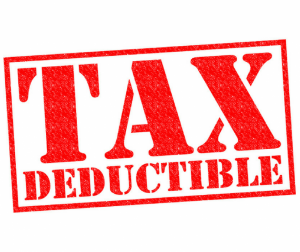
March 2022 Video Recap
Heavy Hits is more than a record pool. You obviously know about our blog– you’re reading it right now– but do you know about our YouTube channel? It’s full of information and tutorials designed to help you become a better DJ or producer. Here’s a recap of what was shared on our YouTube channel this month.
First up, our resident YouTube creator DJ And One teaches us how to clean up an acapella for DJ use.
Next, learn how to mix songs that lack an intro.
Here he teaches how to create some unique effects.
And finally, how to be both a DJ and a dad

Please Don’t Slap the DJ
Burn down the disco
Hang the blessed DJ…
Hang the DJ, hang the DJ, hang the DJ
Morrissey sang those lyrics in 1987, and at the time it was all a bit of cheeky good fun. Yet, we now live in a world where the idea of an audience lynching their DJ may not be as far-fetched as it once was. Where there was once a distinct sense that artist’s speech was protected, and we were expected to laugh at jokes, even those made at our expense, there is now a greater sense that it’s okay to punch someone with whom you disagree. Look no further than last night’s Oscars for proof of this.
Yes, I’m writing about “The Slap.” I won’t dwell on the topic, as it has already been discussed and dissected ad nauseam, but as DJs we are performers, and that can make us vulnerable. If Chris Rock can get smacked for making a joke at the Oscars, a DJ can certainly be on the receiving end of a violent act in a night club or bar.
And while we’re on the topic, like most people, or so it seems, I think Will Smith was 100% in the wrong for what he did, and is lucky he wasn’t arrested for assault.
Now that that’s out of the way, let’s get back to how the slap may affect you, the DJ.
Lately, violence has become more tolerated as a response to dissatisfaction. Whether it’s the “it’s okay to punch a Nazi” excuse that some were using to punch anyone with whom they disagreed, or the “keep your wife’s name out yer mouth” excuse we just saw, people are visiting violence upon others who have in some way, shape, or form offended them.
How would you react if someone requests a song that you can’t, or won’t, play, then takes a swing at you when you don’t play it? What happens if a club-goer swings a chair at your head for playing a song they dislike? Those may seem like unlikely scenarios, but then again, had I told you ten years ago that the Fresh Prince would go onstage and hit Chris Rock at the Oscars, you’d have laughed at me. We are living in an angry, divided society, and people are seeing examples of violence celebrated on a regular basis. The idea that a drunk bar patron might assault a DJ for playing the wrong song, or not playing the “right” one, is not so far-fetched.
What are your thoughts on this topic? Do you have a plan in mind for what you’d do if someone attacks you in the DJ booth? Have you every been attacked whilst DJ’ing? Years ago, someone came into the DJ booth and pulled a knife on me, but that’s a story for another time. Right now, let’s hear your stories!
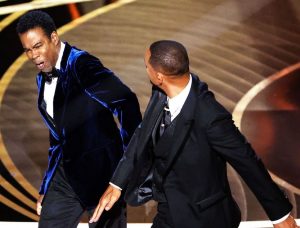
Why Isn’t New Music New?
I posed a question in my previous article: Is new music really new? The answer, it seems, is no. Now let’s try to figure out why this is the case.
The easy answer to “why?” is to attribute the dearth of new forms of music to the advent of the internet. Let’s explore this idea. To start, let’s examine some of the most recent, and I use that term lightly, new styles of music.
Hip hop is a prime example of this. Hip hop has its roots in the 1970s, and most historians agree that it began in the Bronx. Many assign a very specific date to its inception: August 11, 1973. That is the date of DJ Kool Herc’s first public DJ performance, and while it does mark a seminal event in the birth of hip hop, it isn’t necessarily the beginning of the artform. Hip hop has its roots in the early Manhattan disco scene of the late 1960s, and it drew heavily from the tradition of DJs in Brooklyn who brought turntables out to the park for spontaneous dance sessions. After Herc began playing, other DJs, most notably Afrika Bambaataa and Grandmaster Flash, began imitating his method of focusing on drum breaks, which he would often repeat in a loop rather than playing the entire song through from start to finish. Eventually MCs joined the fray, first making announcements or giving quick shout outs, but soon adding short rhymes a la Frankie Crocker or Wolfman Jack, and other radio DJs of the day. But if you were at that party in 1973, you would not hear anything you recognize as what we call hip hop. You’d have heard a DJ playing funk and soul records from the late ’60s and early ’70s. In other words, you’d have heard what people then called disco.
By about 1978, hip hop had evolved from being no different than a disco DJ set to an entirely unique artform. Although what you would have heard in a park in the Bronx in 1979 had grown organically from what you’d have heard in a park in Brooklyn in 1969, hip hop had become its own sound, and was by then unrecognizable as a variant of its source. Like countless styles of music before it, it had become something new.
The same story can be told about reggae, and its evolution through rock steady from ska, or about house, and later techno, music, and its evolution from the polished disco sounds we associate with Studio 54 to the electronic sounds we now hear in clubs and at festivals. Go back further, and you can trace similar lines from the hot jazz of the 1920s to jump blues in the 1940s that became rock & roll in the ‘50s. In every case, you start with music A and end up with music B, which sounds nothing like music A, even though that’s where it began.
Now let’s jump forward to the 1990s. Let’s say hello to the internet.
A music style needs time, and a lot of it, to grow into something new. it has to marinate in isolation for about a decade before all the gradual changes it undergoes over time are enough to make it so different from where it started that it no longer sounds like that original style of music. What Kool Herc played in 1973 was almost the same as what other DJs were playing elsewhere. He made it just a little bit different. And the next time he played, it was a little bit different from before. And then other DJs did it a little more different, and so on, and so on. Eventually it became different enough that it became a unique style of music, but that took time. And it took isolation. Those are the two ingredients that I think every musical style needs in order to come into being. No style of music comes out of nowhere; every style has its roots in another, older tradition, Only with time and isolation does it have the chance to grow and change until it is no longer recognizable as where it began. Think of it like a caterpillar entering its cocoon, only to emerge as a butterfly some time later. No one would ever look at a caterpillar and a butterfly side by side and guess they were the same creature. But no caterpillar instantly becomes a butterfly. It must stay isolated within its cocoon for a period of time for that transformation to occur.
The internet, for better or worse, has made the world a smaller place, and made nearly everything more immediate. Nothing can exist in a vacuum anymore. A party in the South Bronx can be livestreamed to a house in a suburb of Tokyo, and everyone everywhere can find out what’s going on with anyone anywhere. The result, at least when music is concerned, is that while we still have tiny changes in music, we don’t see the cumulative effect of many tiny changes over a decade’s time. That’s why pop music in 2022 is pretty much identical to pop music in 1992. Sure, things sound a little bit different, but if you plucked someone from 1992 and deposited them in 2022, they could identify today’s music as hip hop, or edm, or rock. As I wrote last time, try doing that with someone in, say, 1949. They would hear the music of 1979 and have no frame of reference whatsoever for what they heard.
Maybe I’m wrong, and the internet isn’t to blame. If you think so, please say so. I’d love to hear your thoughts as to why it seems that drastically new styles of music ceased to surface at around the same time that the internet became commonplace.

Is New Music Really New?
When was the last time you heard music that was really new? I don’t mean a new song, or even a new sound or trend, but I mean an entirely new kind of music? That was once the norm, when new musical styles surfaced every decade or so, but now? Not so much.
I started thinking about this the other day, when I was thinking about my father. I was wondering what he made of the world around him when he was my age, and I started to think deeply about the way music changed over the course of his life in comparison to how it has changed over mine.
My father was born in 1917. I know– ancient history! Woodrow Wilson was president, World War I, then known only as the Great War, was raging through Europe, and gas was 15 cents a gallon. The hot music of the day was opera, though ragtime was also popular, and Irving Berlin was the hot artist of the day. By the ’20s, jazz had surfaced, the Charleston was all the rage, and crooners were supplanting opera singers as the stars of the day. That was the music of my father’s boyhood, and it evolved into hot jazz, and some early big band sounds, as he reached his teens. The big bands became the dominant sound in the ’40s, with crooners like Bing Crosby fading and pop vocalists like Perry Como taking over in the ’50s. At the same time, you had jazz sounds morphing into blues songs, and artists like Louis Jordan creating a blueprint for what would become rock & roll later in the decade.
Listen to Louis Jordan’s “Aint That Just Like a Woman” and tell me you don’t hear the roots of “Johnny B. Goode.”
That history lesson aside, in 1970, when my father was as old as I am now, music had changed. Drastically. If he turned on the radio, he heard psych rock, early heavy metal and hard rock, proto-punk, soul, funk, and r&b, and maybe even reggae. Music was unrecognizable to him. Even the softer sounds, like Bob Dylan, and other folk singers, were foreign to his ear. He had no frame of reference to prepare him for what he was hearing, because music had evolved and branched out, and entirely new styles of music existed that didn’t 40 to 50 years earlier.
What about me? When I was in my early teens, that is, in the mid-’80s, if I turned on the radio I heard rock, hip hop, some synth-pop new wave sounds, and some electronic dance music. Now, in my fifties, what do I hear when I turn on pop radio? Rock, hip hop, some synth-pop new wave sounds, and some electronic dance music. Nothing has changed! Sure, the styles of those sounds are a little different– Drake doesn’t sound much like Run-D.M.C.– but the form is familiar. I completely understand what I hear, because it’s the same basic style of music.
When was the last time a completely new style of music surfaced? Hip hop, punk, and disco all came about in the ’70s. House, techno, and electronic music has its roots in disco, but evolved into a unique art form in the ’80s. Post-punk, new wave, and indie rock all branched out of punk in about 1978. But since then? Nothing new. The same styles of music have dominated the charts and airwaves, and now the internet, ever since.
Why do you think this is? I have my own suspicions, and I will offer those theories in the next blog, but in the meantime I would love to hear your thoughts on this subject. If you think I’m wrong, and I’m forgetting some great new styles of music, let me know. If you agree with me, why do you think this is the case?
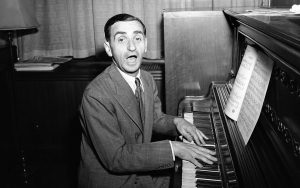
February 2022 Video Recap
Heavy Hits is more than a record pool. You obviously know about our blog– you’re reading it right now– but do you know about our YouTube channel? It’s full of information and tutorials designed to help you become a better DJ or producer. Here’s a recap of what was shared on our YouTube channel this month.
First up, our resident YouTube creator DJ And One teaches us how to DJ with a band.
Next, learn how to make reggaeton edits like Bad Bunny & J Balvin.
Here he lets you know the best place to get your playlists.
Here’s a Valentine’s Day Mini-Mix for you
Today he teaches you how to make mashups like Two Friends & 3lau.
A conversation with Bangarang about how to expand as a DJ.
Today we learn how to use loops while DJ’ing.
Your Crate
Your crate is empty
Player Queue
Player queue is empty

